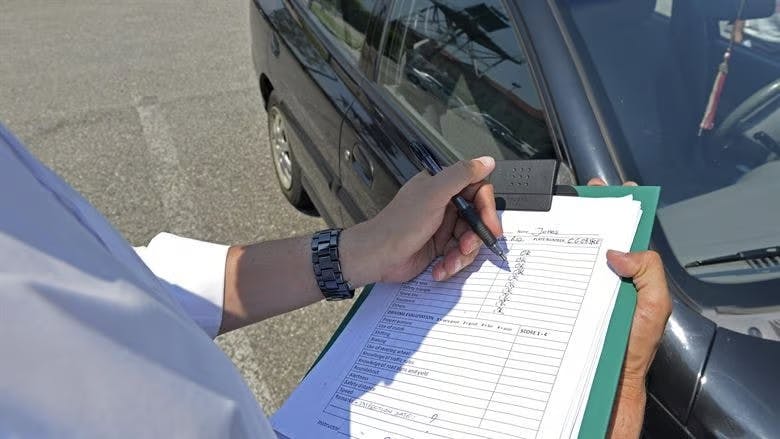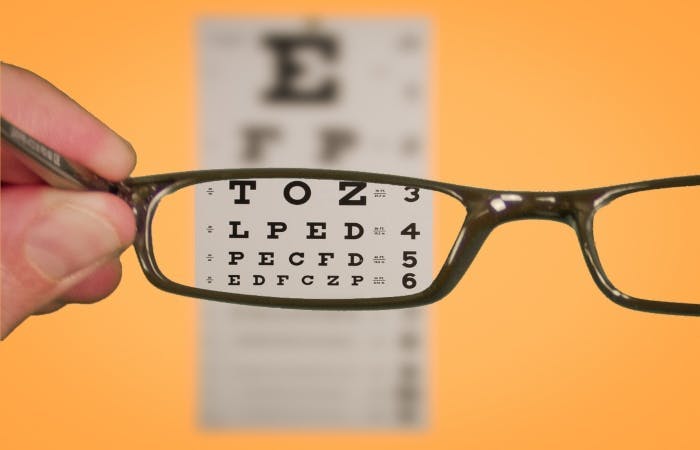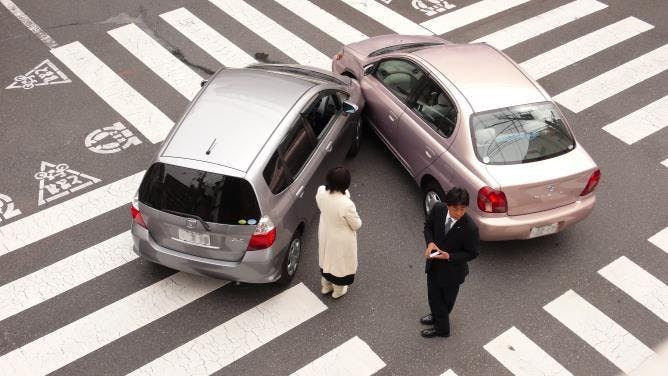
When we're preparing for a particularly important moment in our lives, it's natural to think about what could go wrong. In few circumstances is this more apt than in the driving test. Now, it's unlikely that any of the worst-case scenarios racing through your mind will actually come to pass. Nonetheless, you may still worry about what may happen if things go south. For example, can an examiner stop the driving test early?
The answer to this question is yes — but this doesn't quite cover it. That's why, in this article, we'll guide you through the circumstances in which an examiner might stop the driving test early. From issues with your vehicle to evidence of dangerous driving, there's plenty that could lead to your test being terminated. Read on to get the full lowdown!
Reasons your examiner might terminate the test before it even begins
In case you weren't aware, examiners can actually terminate a test before you start driving. So, before we move on to when the examiner can stop the test early, we're first going to look at a few situations in which your test might not even go ahead...
Problems with the licence
There's a good reason why we urge learner drivers to make sure that they've got their provisional licence before they leave to take their driving test. That's because if you forget your licence on the day, the examiner will simply terminate the test. Yep, that's right—no licence, no test. Want to know the worst part? Not only will you have to suffer long waiting times for your next test, you won't actually get a refund for your practical if you forget your provisional.
The examiner might also choose to terminate the test if there's an issue with your provisional licence, e.g., if it has since expired, or if they have reason to believe you're not the provisional licence holder.
There's a simple solution to this kind of problem. Make sure that your licence is still in date and don't forget to bring it to your test. If you're particularly scatterbrained, set a reminder on your phone just in case. It's always better to be safe than sorry!
Failing the eyesight test

Before you even get in the car, the examiner will ask you to complete an eyesight test. This will involve you having to read a number plate from 20 or 20.5 metres away. If you fail the eyesight test, then your driving test will be terminated. After all, if you can't read a number plate from that distance, how can you be trusted to spot road signs, hazards and other road users?
Additionally, if you need to wear glasses to read a number plate, yet you refuse to wear them for the driving test, the examiner will be forced to terminate the test altogether.
If you're worried about the eyesight test, ask your instructor to test you, or give yourself an assessment. You might also find it useful to read up on eyesight rules to avoid getting caught out on your big day.
Issues with the vehicle
As you'd probably expect, it's pretty important that the vehicle being used for a driving test is actually roadworthy. It's the responsibility of an examiner to check that the vehicle is safe to drive, taxed and insured. If the examiner finds that a vehicle isn't suitable, then they will terminate the test.
If you're taking the driving test in your instructor's car, this shouldn't really be an issue. They'll make sure that their vehicle is up to snuff. If you're using your own car, however, you will need to make sure that it meets the DVSA's strict requirements. Situations in which an examiner will find a vehicle can include:
- If your vehicle has gears that won't remain engaged
- A seat from which the examiner won't get a proper view
- If one or more external lights aren't working
- Any warning lights that indicate the vehicle isn't roadworthy
Remember, if your test is cancelled because your car doesn't meet the rules, you'll have to pay for a new one. No idea what you should be looking for? Read up on our guide to taking the practical test in your own car.
Additionally, if you're using your own car, you'll need to make sure you've sorted out your insurance in the event of you passing. Once you're a qualified driver, your learner driver insurance will no longer be valid. Some insurance providers will allow you to upgrade to a young driver insurance policy once you call them from the test centre, so be sure to look into it beforehand.
Issues with the candidate
Though it certainly doesn't happen often, an examiner can decide to terminate a driving test if they don't feel that the candidate is in the right shape to get behind the wheel. If, for example, they suspect a candidate is under the influence of drink or drugs, they will say that they feel unable to take or continue the test. When doing so, the examiner will use considerable tact and avoid actually referring to drink or drugs.
It should go without saying that drinking or taking drugs when driving is an absolute no-go. Obviously, this also includes when you're taking the driving test.
Reasons your examiner might stop the driving test early

Now we're moving onto the situations in which a driving examiner might decide to stop your driving test early. Prepare yourself—there are a lot!
Dangerous driving
Whilst this might seem a bit obvious, the examiner can decide to stop a test early if they think you're driving dangerously. More specifically, your driving would need to be so dangerous that it poses a threat to the public or occupants of the car. After all, it's the examiner's responsibility to keep themselves and the public safe. So, they will not ignore any erratic or dangerous driving whatsoever.
If you are driving dangerously, then the examiner will ask you to pull over to a safe place and stop. They will then tell you that you have failed due to reasons of public safety. They will also emphasise that completion of the driving test would have made no difference to the 'fail' verdict.
If the examiner feels threatened
Though you might not be aware of this particular problem, driving examiner abuse has been on the rise in recent years. Examiners already have to put up with long hours and the overall repetitive nature of their job, and, unfortunately, they also sometimes have to deal with learners that do not take the outcome of their test all that well. Whether it's damage to property, verbal insults or threats of physical violence, it all falls under the category of 'examiner abuse'.
If an examiner feels threatened by you or your driving instructor during your driving test, they are well within their rights to stop the test early. Of course, that's not all that you have to be aware of. As part of the DVSA's campaign to stop examiner abuse, the following actions will be taken, depending on the severity of the situation...
Learner drivers who swear or verbally abuse staff will be forced to:
- Use a different test centre the next time they take a practical
- Take future tests with an extra supervisor present
Anyone who threatens or assaults examiners, drives off with an examiner still in the car, or damages DVSA property will:
- Be reported to the police
- Face the strongest possible penalties
If the candidate decides they're too ill
No-one wants to drive when they're sick or feel under the weather. Not only is it draining on your already-low energy levels, it can also negatively affect your ability to drive safely. It's for this reason that if a candidate decides they're too ill to take or continue the test, the examiner will terminate it then and there.
Even the examiner has some say in the matter. Before you start panicking, the examiner can't stop the driving test early just because you've got a bit of a sniffle. If, however, they feel that your illness is affecting your driving ability, they can opt to stop the test early. They can also do so if they're informed the candidate has an infectious disease.
If the candidate decides not to continue
As you'd probably imagine, a driving examiner would have no choice but to stop the test early if a candidate decided they could not continue. Let's take a look at a few circumstances in which a learner might decide to take this course of action...
- If the candidate makes a big mistake and feels as though there's no point in carrying on with the test
- Upon being asked to complete a driving test manoeuvre, the candidate refuses to continue
- If a pregnant learner is uncomfortable with demonstrating the emergency stop procedure and chooses to end the test then and there
In most cases, it's much easier to carry on with the test than it is to decide to stop it early. For starters, it means you don't have to walk back with the examiner if your instructor isn't present. More importantly, however, you never really know what the outcome of the test might be. Even if you're sure you've failed, you should continue anyway just in case.
If you're a pregnant learner, and you're not sure whether you should be going in for your test, read up on our guide to driving when pregnant for advice.
In the event of a bribe

Learner drivers can get pretty desperate to get their hands on a full driving licence, especially if it's their second or third attempt. Unfortunately, this desperation has led some learners towards some less-than-savoury methods to try and influence the examiner's decision. In contrast to those choosing to verbally or physically threaten examiners, some learners attempt to bribe their examiner instead.
Whilst we're sure we shouldn't have to tell you, bribing an examiner is frowned upon by the DVSA. Well, it's more than frowned upon. The examiner is required to report you if you attempt to offer them a gift or money. If you attempt to do so during your practical, your examiner will respond by stopping the test early.
If the examiner notices something is amiss
Before you even start the test, the examiner will complete an inspection of your vehicle to ensure it's roadworthy. Whilst examiners are usually very thorough in these inspections, even the most experienced of examiners sometimes don't spot issues until the test has started.
If your examiner notices something is wrong with your vehicle which would make it illegal or unsafe to drive—e.g., direction indicators that aren't working—and which may potentially endanger the health or safety of the examiner, passenger(s) or public, they should stop the test early. Of course, if it's an issue that can be fixed within 5 minutes, the examiner is urged to give the candidate the opportunity to rectify the fault.
In the event of an accident

As anyone familiar with driving knows, the roads are unpredictable even at the best of times. If a candidate is unfortunate enough to end up in an accident, it can have a big impact on their test depending on the circumstances and severity of the accident.
If you are involved in an accident, yet you show no signs of stopping to comply with legal obligations, then the examiner will tell you that you're required to stop by law—in order to exchange names and insurance information. Now, if the vehicle is rendered unroadworthy due to this accident, or exchanging information leaves insufficient time to complete the test, then the examiner will stop the driving test early. Examiners are also urged to stop the test if the learner appears to be suffering from shock.
If the test is indeed terminated, and the accident was your fault, then you'll be given a fail. If it was someone else's fault, however, you don't have to worry—the examiner will note it down as a 'no result'.
Driving on the motorway
We know what you're thinking; motorway driving isn't on the test, is it? Though that is indeed the case, and every effort is taken by examiners to ensure learners don't end up on the motorway, things don't always go according to plan.
If you end up on the motorway during your test, the examiner will have to guide you onto the hard shoulder of a slip road before deciding the next safe course of action. In the event that that isn't possible, they'll urge you to continue on to the next available exit. If this does happen to you, and it's your fault, the examiner will stop the driving test early and issue you a fail.
The only rare exception would be if you were forced to avoid another vehicle and the only safe option was to join the motorway. In this instance, the examiner would still stop the test early. In this instance, however, they would give you a 'no result' instead of a fail.
FAQs
I don't agree with the examiner stopping my driving test. Can I appeal?
Yes, you can. All learners have the right to appeal a driving test. That being said, you first have to be sure that you're doing it because the examiner was biased or inappropriate, as opposed to just being angry that you failed. Additionally, you should be aware that even if you are successful and the DVSA sides with you, you'll only receive a free retest. You will not be able to change the result of your test.
Is it normal for two examiners to show up to a driving test?
Driving examiners sometimes have to undergo observation by DVSA staff in order to ensure they're following the rules and adhering to the DVSA's guidelines. In these situations, a second person will sit in the backseat of the car to watch what the examiner is doing. This will not impact your test in any way. The second person will be watching the examiner, not you.
What happens if an examiner stops a driving test early?
If the driving test has been stopped away from the test centre, then the examiner will suggest returning to the centre if there's an accompanying driver or ADI who is covered to drive the vehicle. If no one is available to drive the car, the examiner will have to walk back with the candidate. Alternatively, the candidate may choose to wait in the car for their instructor to come and get them.
Do driving test examiners have a pass or fail quota?
This is certainly one of the most popular driving test myths we hear about. The answer is no: driving examiners do not have a pass or fail quota. Examiners simply follow the rules and guidelines outlined by the DVSA when assessing a learner's driving ability. If you meet these standards, then you pass. If you don't, then you fail. There's nothing more to it!
Am I supposed to talk to the examiner during my driving test?
It's entirely up to you! If you like a bit of small talk as you drive, or if it puts you at ease, then go right ahead. Conversely, if you struggle to multitask, then concentrate on your driving—the examiner will catch on. Or, if you'd prefer, leave the ball in the examiner's court. If they start chatting, or don't talk at all, you can follow suit.
Am I allowed to bring my driving instructor with me on my driving test?
Yep. If you'd like to take your instructor with you on the test, then you can go right ahead. Many learners are more comfortable in the test when they know that their instructor is with them—it makes for great moral support. Of course, if you think they'd be a distraction, or you'd feel too self-conscious, then leave them at the test centre.
Will I end up with the same driving examiner if I have to retake the driving test?
It depends. If you're at a test centre with a limited number of examiners, you might very well end up with the same one. Of course, if this does happen, it's sheer coincidence—the examiner certainly isn't going out of their way to test you again!
My driving test was stopped early. How do I book a new one?
You can use the DVSA's booking service to book a new driving test. Of course, if you do, you'll have to deal with long driving test waiting times. If you're looking to get on the road ASAP, you can get PassMeFast to book you a fast-track practical test instead.
I've lost my provisional licence. What should I do?
If you've lost your provisional licence, you can simply apply for a replacement from the DVLA online, by phone or by post. You can get a better look at what this process entails in our handy guide. If you apply online or by phone, your new licence will usually arrive in around a week. In contrast, applying by post will take a staggering three weeks. Obviously, if you don't think your replacement licence will arrive before your test date, you should rearrange it.
What's a 'walk-back'?
When a driving test is stopped by the examiner or learner, the next stage is usually a 'walk-back'. That is, if it's just you and the examiner, the examiner will have to walk back to the test centre, as they're not insured to drive the car. If you don't fancy sitting in the car and waiting for your instructor, you can accompany the examiner on the walk-back. If your instructor is in the car, they can drive you and the examiner back to the test centre instead.
How do I know if I'm ready for the driving test?
For starters, your driving instructor wouldn't let you go in for a driving test if they didn't think you were ready. It would be completely counter-productive to throw you in the deep end if you're not actually ready. If you're still worrying, however, you can read up on 5 signs that mean you're not test-ready.
How do I stop feeling nervous about my driving test?
If nerves are a big issue for you, don't worry—we've got plenty of resources that are sure to settle them! To start with, read up on our guide to avoiding test day nerves. Once you've finished that, have a gander at our top 10 tips for relaxing before the driving test. You'll be as cool as a cucumber in no time!
Subscribe for driving advice, offers & more
We'd love to let you know about our courses, news and offers via email. You may unsubscribe at any time.
Star Genie Limited trading as PassMeFast. Company number 10093359
Copyright © 2024 owned by Star Genie Limited
PassMeFast, Blue Tower, MediaCityUK, Salford, M50 2ST
